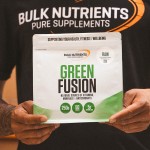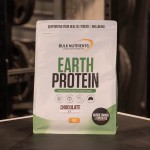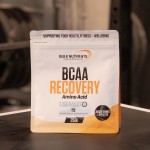The Ultimate Guide to Artificial Sweeteners

A love for all things sweet
We all love sweets, right? Whether it’s a small sweet tooth or a big one, there is a place for sweets in all our lives (that’s what I believe anyway).
But why you ask?
Well, ‘sweetness’ is recognised as one of the five “basic tastes” detected by our sensory receptors present in the oral cavity. Research of past decades suggests that liking sweetness is innate and influenced by cultural and personal preferences.
According to years of research on the subject, the appreciation for sweets comes naturally to us. It’s also likely influenced by culture (ie. common delicacies and food groups) as well as personal preferences.
But the love for all things sweet can become an issue if we are constantly consuming the high-calorie simple carb – Sugar.
This is where artificial sweeteners come in.
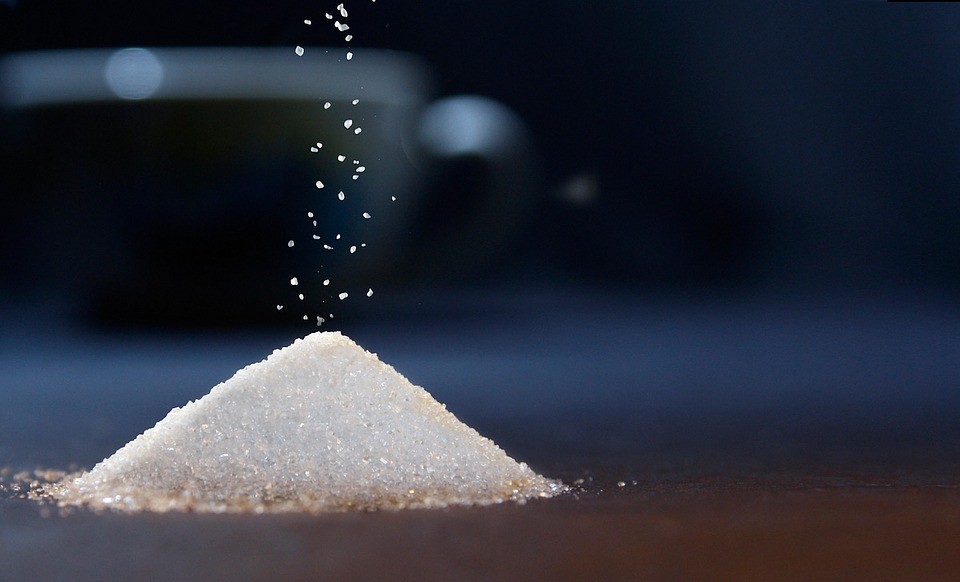
Artificial sweeteners, what actually are they?
Put simply, artificial sweeteners are sugar alternatives that contain low or no calories yet still deliver the sweet taste we all love so much. These kinds of sweeteners are synthetically made and usually contain ingredients that the body can’t metabolise, which is why they contain no calories!
Many artificial sweeteners are stronger than sugar and only require a very small amount to sweeten foods. This is the case for sucralose for example. Their main benefit, of course, is having the ability to reduce caloric intake while satisfying the sweet tooth.
The popular kids on the block
There are countless artificial sweeteners on the market, but the reality is that only a few of them have been studied and tested in-depth.
Aspartame, sucralose, acesulfame-K and saccharin make up the majority of the research into artificially made sweeteners and are also among the most commonly used.
Let’s take a closer look at these popular choices.
Sucralose
Sucralose is the most common artificial sweetener out there and for good reason.
Sucralose (sweetener 955) is actually made from sugar, but as it’s not recognised as sugar by the body, it’s not metabolised and contains no calories. Sucralose is most commonly bought by the public as Splenda and is frequently used to sweeten soft drinks, protein bars and supplements worldwide.
We use sucralose in our products at Bulk Nutrients. Here are a few reasons why:
- Sucralose is 600 times as sweet as sugar. This means only a very small amount is required to sweeten products and therefore doesn’t affect the purity of the product. This is especially important with our protein powders.
- It flavours very well. Sucralose has a sugar-like taste with no strong aftertaste. It also has great stability as an ingredient in a lot of products.
- It’s considered the safest sweetener around. Sucralose is one of the most thoroughly tested ingredients in the world. There have been 110+ studies proving it safely over a 20 year period allowing it to be approved by Joint FAO/WHO Expert Committee of Food Additives, the FDA, Health Canada and the Scientific Committee on Food of the European Commission.
Aspartame
Aspartame (sweetener 951) has gotten a bad rap in the media due to some studies testing its effects on rodents which found that exposure to aspartame is associated with various cancers in rats and mice.
However, research has shown that the doses of aspartame required to pose danger to humans are far larger than what any normal person could consume in a day. The acceptable daily intake for aspartame as set by the FDA is 50mg per kg of bodyweight the equivalent of a whopping 18 to 19 cans of diet soda.
A survey conducted in 2003 by Food Standards Australia and New Zealand found that average Australian consumers of aspartame were eating 6% of the ADI, and high consumers were eating 15% of the ADI.
They concluded that Australian consumption was well below the levels at which adverse health effects could occur. Aspartame is one of the sweeteners found in Pepsi Max and Coke No Sugar/Zero.
Acesulfame potassium (Ace-K)
Ace-K (sweetener 950) is another artificial sweetener that isn’t metabolised by the body. It sits at around 200 times sweeter than sugar while providing no calories.
One breakdown product of Ace-K is a chemical known as acetoacetamide, which is known to be toxic if consumed in very large doses. But the amounts of acetoacetamide found in spoonfuls of Ace-K are far below dangerous levels. Still, although plenty of research has found that Ace-k is safe for animals, human studies are still rare.
Ace -K can also be found in Pepsi Max and Coke No Sugar.
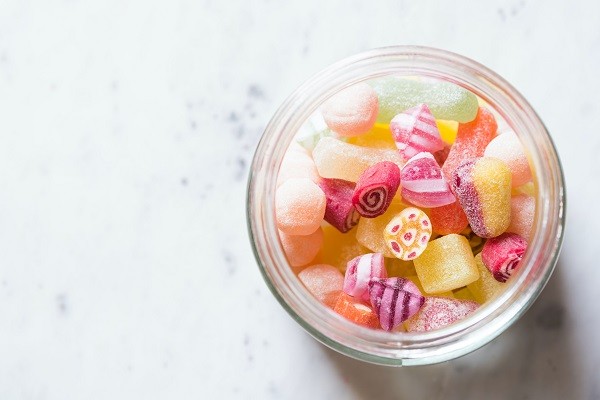
So are they good or bad?
Like any ingredient, artificial sweeteners come with positives and negatives.
Just like sugar can increase the likeliness of diabetes and obesity in some individuals, aspartame could cause migraines in others. However, extensive research on sweeteners (especially sucralose) proves their safety for consumption.
It’s important to note that when artificial sweeteners are used in studies they are given to test animals in really large amounts. These amounts are so massive that humans couldn’t possibly consume that much of the sweetener from food and drinks.
As well as this, those rumours attributing the onset of cancer to sweeteners were knocked back by The World Cancer Research Fund. They stated that the evidence provided by these studies doesn’t suggest that artificial sweeteners have a detectable effect on the risk of any cancers.
Sweetness and weight loss
Often the more you consume sweet-tasting foods, the more you continue to crave them.
For some people experiencing that sweet taste from artificial sweeteners means they continually have a hankering for chocolate or doughnuts, which obviously doesn’t help them in their quest to reduce sugary sweets. However, a recent study found that a higher preference for sweets was not linked to obesity, so that’s good to hear!
In terms of weight loss, swapping sugar for an artificial sweetener is a great way to reduce the intake of sugars (and calories) which is beneficial for those looking to reduce body weight and fat.
Many studies have noted reductions in weight and body fat in groups of people using artificial sweeteners compared to those using calorie-dense sugars.

The natural option
If you prefer to use a natural sweetener, stevia is your top choice.
Stevia is a low-calorie sweetener derived from nature itself. Extracted from plant leaves, stevia is around 300 times sweeter than sugar. The only downside is it does have a strong aftertaste that is more noticeable than sucralose or other artificial sweeteners.
Stevia is used throughout our naturals range, including in our Green Fusion, Natural WPI, Natural WPC, and Earth Protein.
We also sell it as a straight sweetener to use in baking and hot drinks.
There are a few reasons why we don’t use stevia in all of our products. When it comes to sweetening amino acids like BCAA Recovery and Future Whey, stevia just doesn’t do the job.
Amino acids are quite bitter to taste and can be difficult to mask. Unfortunately, as much as we tried, stevia didn’t produce results as good as sucralose.
Also, sucralose is twice as sweet as stevia, so its inclusion rate is even smaller. This means your receive a very pure product.
If you have any further questions on artificial sweeteners, please comment below or contact our customer service team.

Ellie’s an absolute copywriting boss from Hobart, Tasmania!
She's an amateur powerlifter who's crushed it in several competitions, and she's got all the keto knowledge to keep her fuelled up for her workouts.
One thing you'll always find in Ellie's pantry is a jar of peanut butter - she's obsessed.
More about Ellie HearnRelated Blogs
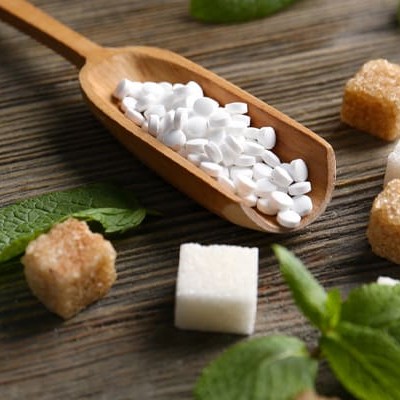
Artificial Sweeteners: Sweet Tasting Poison, or Useful for Fat Loss?
Posted by Jackson Peos
Estimated reading time: 8 minutes

There's a new review into artificial sugars
Posted by Dayne Hudson
Estimated reading time: 7 minutes
